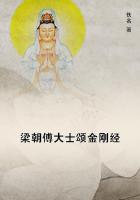Thus begins the contrast between the religion of the letter, or of the narrow and unenlightened conscience, and the higher notion of religion which Socrates vainly endeavours to elicit from him. 'Piety is doing as Ido' is the idea of religion which first occurs to him, and to many others who do not say what they think with equal frankness. For men are not easily persuaded that any other religion is better than their own; or that other nations, e.g. the Greeks in the time of Socrates, were equally serious in their religious beliefs and difficulties. The chief difference between us and them is, that they were slowly learning what we are in process of forgetting. Greek mythology hardly admitted of the distinction between accidental homicide and murder: that the pollution of blood was the same in both cases is also the feeling of the Athenian diviner. He had not as yet learned the lesson, which philosophy was teaching, that Homer and Hesiod, if not banished from the state, or whipped out of the assembly, as Heracleitus more rudely proposed, at any rate were not to be appealed to as authorities in religion; and he is ready to defend his conduct by the examples of the gods. These are the very tales which Socrates cannot abide; and his dislike of them, as he suspects, has branded him with the reputation of impiety. Here is one answer to the question, 'Why Socrates was put to death,' suggested by the way. Another is conveyed in the words, 'The Athenians do not care about any man being thought wise until he begins to make other men wise; and then for some reason or other they are angry:'
which may be said to be the rule of popular toleration in most other countries, and not at Athens only. In the course of the argument Socrates remarks that the controversial nature of morals and religion arises out of the difficulty of verifying them. There is no measure or standard to which they can be referred.
The next definition, 'Piety is that which is loved of the gods,' is shipwrecked on a refined distinction between the state and the act, corresponding respectively to the adjective (philon) and the participle (philoumenon), or rather perhaps to the participle and the verb (philoumenon and phileitai). The act is prior to the state (as in Aristotle the energeia precedes the dunamis); and the state of being loved is preceded by the act of being loved. But piety or holiness is preceded by the act of being pious, not by the act of being loved; and therefore piety and the state of being loved are different. Through such subtleties of dialectic Socrates is working his way into a deeper region of thought and feeling. He means to say that the words 'loved of the gods' express an attribute only, and not the essence of piety.
Then follows the third and last definition, 'Piety is a part of justice.'
Thus far Socrates has proceeded in placing religion on a moral foundation.
He is seeking to realize the harmony of religion and morality, which the great poets Aeschylus, Sophocles, and Pindar had unconsciously anticipated, and which is the universal want of all men. To this the soothsayer adds the ceremonial element, 'attending upon the gods.' When further interrogated by Socrates as to the nature of this 'attention to the gods,'
he replies, that piety is an affair of business, a science of giving and asking, and the like. Socrates points out the anthropomorphi** of these notions, (compare Symp.; Republic; Politicus.) But when we expect him to go on and show that the true service of the gods is the service of the spirit and the co-operation with them in all things true and good, he stops short; this was a lesson which the soothsayer could not have been made to understand, and which every one must learn for himself.
There seem to be altogether three aims or interests in this little Dialogue: (1) the dialectical development of the idea of piety; (2) the antithesis of true and false religion, which is carried to a certain extent only; (3) the defence of Socrates.
The subtle connection with the Apology and the Crito; the holding back of the conclusion, as in the Charmides, Lysis, Laches, Protagoras, and other Dialogues; the deep insight into the religious world; the dramatic power and play of the two characters; the inimitable irony, are reasons for believing that the Euthyphro is a genuine Platonic writing. The spirit in which the popular representations of mythology are denounced recalls Republic II. The virtue of piety has been already mentioned as one of five in the Protagoras, but is not reckoned among the four cardinal virtues of Republic IV. The figure of Daedalus has occurred in the Meno; that of Proteus in the Euthydemus and Io. The kingly science has already appeared in the Euthydemus, and will reappear in the Republic and Statesman. But neither from these nor any other indications of similarity or difference, and still less from arguments respecting the suitableness of this little work to aid Socrates at the time of his trial or the reverse, can any evidence of the date be obtained.















